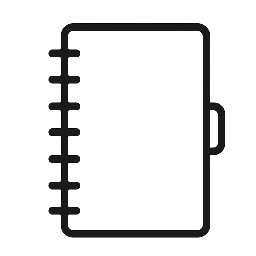FDA imports refer to products brought into the United States that must comply with regulations set by the Food and Drug Administration. These include food, drugs, medical devices, and cosmetics. The FDA ensures imported products meet safety and quality standards to protect public health.
Importers and manufacturers must navigate complex rules and inspections to gain FDA approval for their products. Failure to comply can result in delays, fines, or refused shipments. Understanding FDA import requirements is essential for businesses involved in international trade.
FDA Imports Overview
The FDA oversees the entry of many products into the United States, ensuring safety and compliance. The regulation spans a wide variety of goods, using a structured process that importers must follow to meet federal requirements.
Regulatory Framework
The FDA’s authority for regulating imports is established under the Federal Food, Drug, and Cosmetic Act (FD&C Act) and related laws. It works alongside U.S. Customs and Border Protection (CBP) to inspect shipments.
Key regulations include:
- Prior Notice: Importers must notify the FDA before goods arrive.
- Detentions and Refusals: The FDA can detain or refuse products that violate safety standards.
- Import Alert: Certain products or manufacturers can be flagged, leading to automatic detention.
The FDA focuses on protecting public health by preventing unsafe or mislabeled products from entering the U.S. market.
Types of Products Regulated
The FDA regulates a broad range of imported products, primarily those related to food, drugs, medical devices, cosmetics, and certain biological products.
Examples include:
- Human and animal food items
- Prescription and over-the-counter drugs
- Medical devices like diagnostic instruments
- Cosmetics such as skin care products
- Vaccines and blood products
Each category has specific regulatory requirements to ensure product safety, efficacy, and labeling accuracy.
Import Process Steps
The import process includes several critical steps:
- Prior Notice Submission: Importers must electronically inform the FDA of incoming shipments.
- Entry Filing with CBP: Customs documents are submitted to allow goods into the U.S.
- FDA Review: The agency reviews documentation for compliance.
- Inspection: Physical examination or sampling may occur if FDA deems it necessary.
- Clearance or Detention: Products meeting standards are cleared; others may be detained or refused.
Timely and accurate documentation is essential to avoid delays or refusals during this process.
Compliance Requirements for FDA Imports
Meeting FDA import standards requires precise documentation, readiness for inspections, and addressing common regulatory challenges. Each element plays a vital role in ensuring products enter the U.S. market without delays or penalties.
Documentation and Filings
Importers must submit accurate entry summaries via the Automated Commercial Environment (ACE). These filings include prior notice of food shipments, product descriptions, and Harmonized Tariff Schedule (HTS) codes. Supporting documents such as invoices, bills of lading, and FDA product registration numbers are essential.
Failure to provide complete documentation can result in detention or refusal of imports. Additionally, certain products require additional filings, like the Prior Notice for food or the FDA Form 2877 for devices. Maintaining updated records and compliance with FDA eSubmitter tools helps streamline approval.
Inspection Procedures
FDA inspections can occur at ports of entry or manufacturing sites overseas. Inspectors verify product identity, labeling, and confirm adherence to Good Manufacturing Practices (GMP) where applicable.
Physical samples may be collected for laboratory analysis to check contaminants or misbranding. Inspectors may also review importers’ paperwork and trace product origins. Noncompliance findings often lead to import holds or refusals until corrective actions occur.
Common Compliance Challenges
Common issues include inaccurate or incomplete paperwork, incorrect product labeling, and failure to meet quality standards like those for biologics or pharmaceuticals. Language barriers and misunderstanding FDA definitions often cause misfiling.
Delays frequently arise from inconsistent application of FDA guidelines and lack of familiarity with import systems. Importers must stay current with FDA guidance documents and use consulting expertise when needed to minimize compliance risks.





Leave a Reply